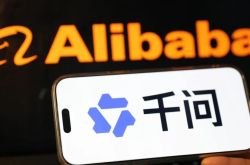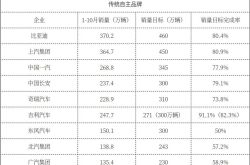Entering the Deep-Water Zone: The Ecological Game Among 'Tmall, Douyin, and JD' and New Survival Rules for Brands After Double 11
![]() 11/23 2025
11/23 2025
![]() 508
508
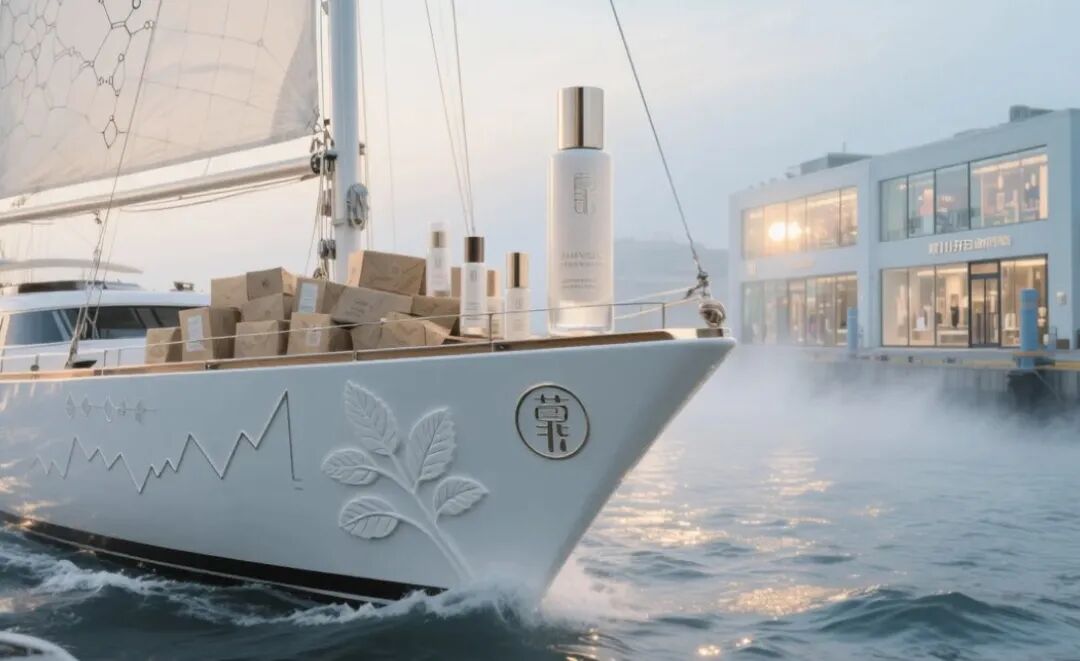
By Yang Lei
Source / Node Beauty
As Double 11 in 2025 drew to a close, Liu Bo (alias: Jialuo), President of Tmall, summarized this phased victory: 'Tmall achieved its best growth in four years throughout the entire Double 11 cycle.' He particularly emphasized that the transaction volume was calculated after excluding refunds for unshipped orders. JD also achieved a breakthrough in the facial skincare category, which it had not previously excelled in, leading mainstream platforms with a 12.1% growth rate. Douyin continued to leverage its content-driven capabilities, creating numerous growth cases for domestic brands.
Node Beauty predicts that through this year's extended Double 11, platforms and brands have jointly entered the deep-water zone of 'intensive and meticulous' omnichannel operations. As the most trend-setting category in fast-moving consumer goods, beauty clearly reflects how the three major platforms—Tmall, Douyin, and JD—have transitioned from 'homogenized competition' to 'differentiated coexistence.'
For beauty brands, Double 11 is no longer a simple multi-platform sales battle but a comprehensive test of their 'platform strategic layout (layout).' Brands need to allocate resources precisely across platforms with different attributes, much like capital operators: some pursue brand value accumulation, some bet on high-growth potential, and others focus on certainty and cash flow security.
At this stage, the key to success for beauty brands lies beyond mere 'channel layout (layout)' and has evolved into 'ecological integration'—deeply binding with platforms and co-creating value.
01 Tmall: A Value Fortress for High-End Beauty and a Hub for In-Depth Membership Operations
During Double 11 in 2025, Tmall further solidified its position as a 'value fortress' for beauty brands. Its growth logic shifted from mere traffic competition to building an operational ecosystem that deeply binds brands with high-net-worth users through membership economics and AI tools.
For beauty brands, Tmall's core value lies in its ability to gather a core customer base with strong purchasing power and high loyalty while providing effective tools for refined operations of these groups.
The most noteworthy feature is the 88VIP membership. This status symbol, akin to an 'online version of an SKP membership card,' fosters identity recognition and exclusive member benefits that distinguish it from other platforms.
Tmall Double 11 data shows that as of October 31, 2025, the number of 88VIP members had reached 53 million. The average daily number of unique buyers grew by 39% year-on-year, and their per capita spending was nine times that of non-members. This high-value user group contributed over 70% of the transaction volume for leading beauty brands. Specifically, for beauty brands, the pull (pull) effect on growth was extremely significant.
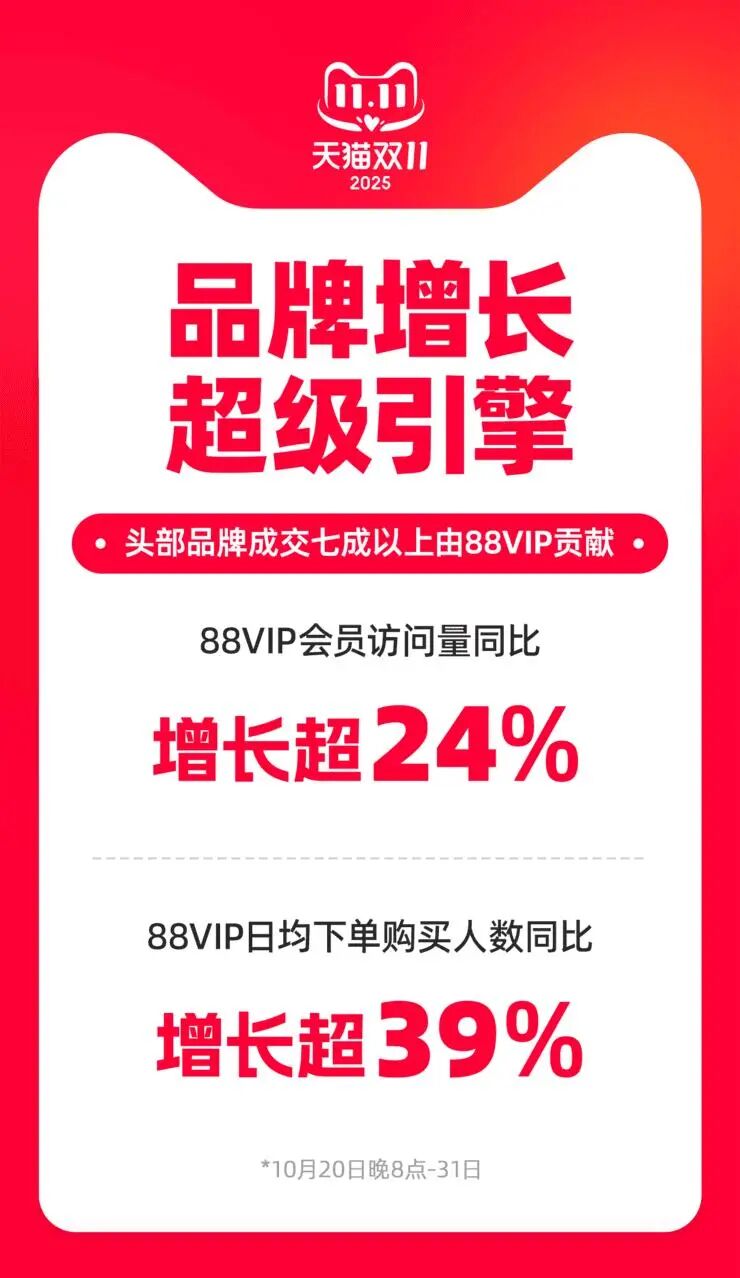
According to data released by Taotian, during Double 11, the transaction volume from 88VIP members accounted for over 92% of La Mer's total sales. La Mer hosted exclusive internal purchase events for 88VIP members, offering special add-on gifts. Its best-selling product, The Treatment Lotion, came with a 'buy one, get one free' offer, leading to a more than 30-fold increase in store-wide transactions compared to regular days.
L'Oréal's brand SkinCeuticals achieved over 1 billion yuan in total store transactions from the start of sales until October 25. The 88VIP members contributed 95% of the transaction volume for its best-selling new product, the AGE Interrupter.
Domestic brands also benefited from the 88VIP membership dividend. During this year's Double 11, Maogeping made its debut in the TOP 20 list. Over the past year, its member-driven GMV grew by 75%, and the member repurchase rate reached 41%.
Node Beauty learned that this year's Double 11 saw significant upgrades to Tmall's 88VIP discount rules, notably enhancing the shopping experience for high-ticket categories like beauty. Instead of distributing large coupons that required complex calculation and consolidated payments, 88VIP members could now enjoy a straightforward 10% discount on single items within their coupon limit, eliminating the need for consolidated orders. This change directly addressed the pain point of 'complex discount calculations' during previous major promotions.
An 88VIP user shared screenshots of her Double 11 orders with Node Beauty, stating, 'This year's experience was indeed simpler. With a direct 10% discount, I could buy whatever I wanted without becoming an actuary trying to figure out the best deals.'
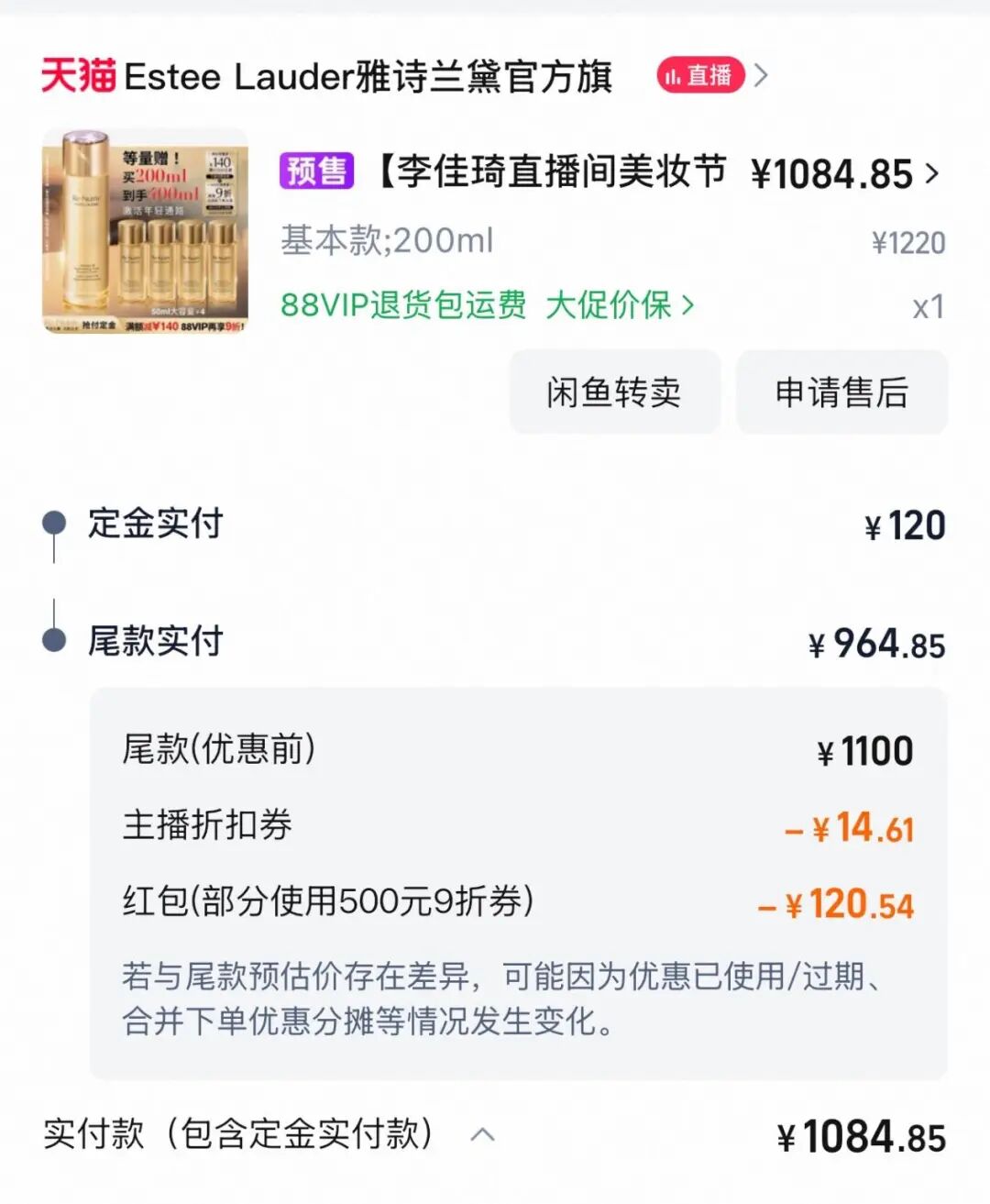
This 'no-gimmick' discount approach significantly enhanced the sense of certainty and trust among high-net-worth users, allowing them to focus more on the intrinsic value of products rather than price calculations. They could more calmly pay attention to the efficacy of the products themselves and purchase those that suited them.
Behind this lies Tmall's precise calculation through an AI toolkit, which serves as an 'intelligent engine' for refined brand operations.
Tmall empowers merchants with AI technology for refined operations. AI tools assist brands in store diagnostics, user persona analysis, and marketing strategy generation, handling extensive analytical work. This enables brands to allocate resources more precisely toward potential high-value customers.
One noteworthy aspect is that this year, 'Taobao Flash Sale' integrated with Taotian, offering more possibilities for beauty brands to connect with instant retail networks. On the one hand, the increased activity and open rates of flash sale users on Taotian drove growth in the e-commerce sector. On the other hand, beauty brand merchants can potentially provide one-hour delivery services through flash sales in the future (similar to Uniqlo and Apple products).
02 Douyin: From 'Interest-Based E-Commerce' to 'Immersive Content E-Commerce,' Reconstructing Brand-User Relationships
Compared to the dominance of international brands in Tmall Beauty's TOP 20, Douyin's ecosystem offers domestic brands an opportunity to 'overtake on a different track' and compete with international giants.
According to battle report data, among Douyin Beauty's TOP 20, domestic and foreign brands each occupied 10 spots. Notably, Hansu surpassed Proya to claim the top spot in the 2025 Douyin Double 11 Beauty Brand Rankings, while Guyu, Pechoin, and Herborist entered the TOP 10 list.

This has once again made Douyin's ability to incubate domestic brands a focal point in the industry. This content-driven platform is injecting explosive growth momentum into domestic beauty brands by reconstructing brand-user relationships.
In Node Beauty's view, Douyin is no longer satisfied with being an 'interest-based e-commerce' platform but is fully upgrading to 'immersive content e-commerce.' The deep integration of content and shopping shelves has formed a unique consumption ecosystem.
The case of Hansu clearly demonstrates this transformation: nearly 80% of its GMV came from livestreaming, with its 'Red Waist Floral Gift Set' accumulating hundreds of millions in GMV, and over 60% of sales generated through brand self-operation.
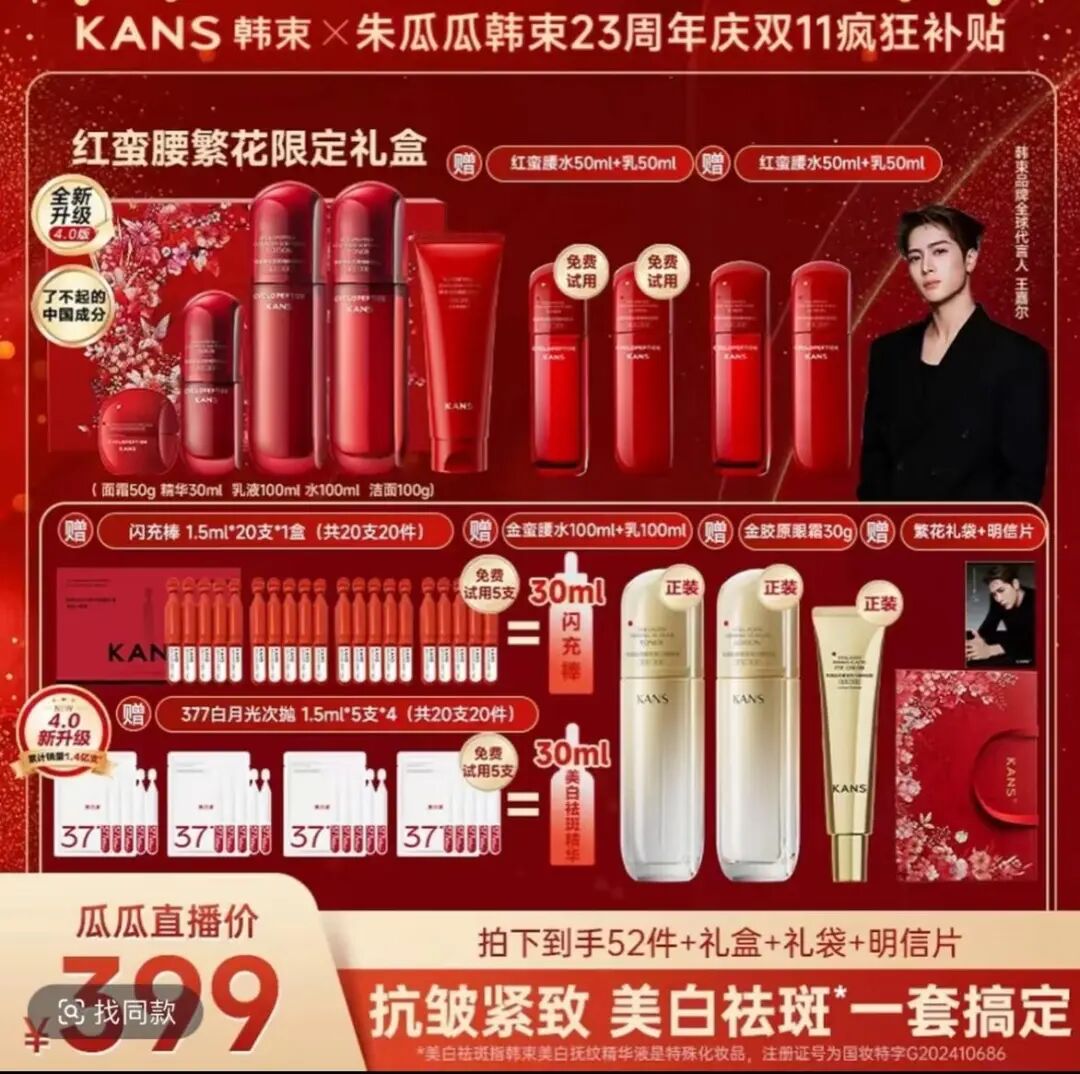
This indicates that Douyin is no longer just a sales channel but a comprehensive arena integrating brand communication, user interaction, and sales conversion.
The rise of domestic brands on Douyin is not coincidental but results from precisely matching the platform's content characteristics and user demographics. Breaking it down, successful domestic brands employ three core strategies:
First, the deep integration of content and shopping shelves. Douyin is no longer just a place to acquire traffic but achieves continuous user engagement through a closed loop of 'short video seeding + livestream harvesting + search repurchasing.' Among the 23 livestream rooms exceeding 100 million yuan in GMV, nine were official brand livestream rooms. These brands entered Douyin's top 20 products with a 'store livestream + flagship product' combination, indicating a trend toward 'de-influencer' operations.
Second, building a private domain through self-livestreaming systems. Successful domestic brands no longer rely heavily on top influencers but focus on constructing their own livestreaming systems. This is evident in the two leading brands, Hansu and Proya. This self-livestreaming capability not only reduces marketing costs but, more importantly, establishes a direct communication channel between brands and users, enhancing user stickiness and brand control.
Third, category breakthroughs through hit product strategies. Douyin's hit product logic requires brands to create core products with distinct selling points and strong communicative power. For example, during Double 11, Guyu achieved hundreds of millions in cumulative GMV with its 'Anti-Aging Aurora Spot-Fading Essence.' Lin Qingxuan's 'Camellia Anti-Wrinkle Repair Essential Oil' became its flagship product, while Kérastase successfully entered the high-end market with its 'Vitamin C Essence Brightening Single-Use Set.'
These cases prove that in Douyin's fragmented ecosystem, concentrating resources on creating star products is far more effective than offering a full range of products.
Douyin acts as a powerful 'heart,' continuously pumping growth for domestic beauty brands. However, its value extends far beyond sales, becoming a critical arena for brands to accumulate emotional recognition and achieve user asset accumulation.
03 JD: From 'Experience Moat' to 'Intelligent Supply Chain Customization'—A Value Leap
The most unexpected development is JD, a platform traditionally dominated by male users and home appliance/digital product consumers, which has also started targeting female customers, particularly middle-aged women with strong purchasing power.
A JD PLUS member told Node Beauty that during this year's Double 11, when purchasing baby formula, in addition to toys provided by the brand, the platform also offered a free one-year JD PLUS membership.

While the mother and baby (maternal and baby) sector and beauty sector may seem unrelated, they actually target mommy (mothers with purchasing power). JD cleverly uses its PLUS membership system to precisely recommend high-end beauty products to these potential consumers.
According to Xingtu data, the top five beauty and skincare brands on JD during Double 11 were Lancôme, Estée Lauder, SK-II, L'Oréal, and SkinCeuticals—all international high-end brands. This further indicates that JD has become one of the most important online channels for international beauty brands in the Chinese market. During Double 11, the platform's facial skincare category grew by 12.1%, ranking first among mainstream e-commerce platforms.
Node Beauty believes that JD's ability to win over high-end beauty consumers during Double 11 stems from three core advantages, which collectively build a 'moat' for these users' shopping experience.
First, an unshakable reputation for authenticity. In the beauty sector, especially high-end skincare, authenticity and quality are consumers' top concerns. JD has established a robust authenticity guarantee system through strict product reviews and comprehensive supply chain management.
According to a survey by Economic Observer, when purchasing high-end beauty and skincare products, consumers most recognize JD's authenticity guarantees, delivery speed, after-sales quality, and comprehensive service levels—a proportion significantly higher than other platforms.
Second, a deterministic service experience. Leveraging its self-built logistics system, JD has formed a core competitive edge in delivery timeliness and after-sales service. For high-ticket beauty products, consumers purchase not just the product but also a 'deterministic experience': certainty of authenticity, fast delivery, and convenient returns/exchanges if issues arise.
This certainty significantly reduces decision-making risks for high-end beauty consumers and boosts their purchasing confidence.
Third, precise matching with high-net-worth user groups. JD's user base highly overlaps with high-end beauty consumers, who are less price-sensitive and prioritize quality and service. JD PLUS members, similar to Tmall's 88VIP, represent high-value users with strong purchasing power.
To strengthen its beauty supply chain advantages, JD further upgraded its service capabilities during Double 11 in 2025. Through AI empowerment, JD's 'Jingdiandian' and 'JoyGen Platform' enable merchants to generate marketing videos within five minutes.
JD's digital human livestreaming drove over 2.3 billion yuan in GMV, while 'Jingxiaozhi 5.0' served a cumulative 160 million times. These technological applications not only enhanced user experience but also provided brands with more efficient operational tools.
For domestic brands, JD has shown a more open stance. Although foreign brands currently dominate, Proya's inclusion among JD's top beauty and skincare brands proves that domestic brands also have growth opportunities on JD.
As domestic beauty brands move toward high-end positioning, JD is poised to become a new arena for them to elevate their brand image and reach high-net-worth users.
04 Omnichannel Ecological Integration: New Survival Rules for Beauty Brands After Double 11
Double 11 in 2025 clearly demonstrates that the ecological barriers of the three major platforms have become impenetrable, each evolving toward extreme specialization:
Tmall serves as an 'AI-Driven Innovation Engine,' acting as brands' 'brain' and 'R&D center' for future success.
Douyin functions as an 'Immersive Experience Arena,' accumulating emotional recognition and driving explosive growth for brands—its 'heart' and 'marketing center.'
JD stands as a 'Fortress of Intelligent Supply Chains,' ensuring deterministic returns and cultivating high-net-worth users—its 'cornerstone' and 'service center.'
For beauty brands, a simple 'multi-platform presence' strategy is no longer effective. Future success belongs to brands capable of 'ecological integration.' This requires brands to possess data integration, strategy fusion, and organizational integration capabilities.
In terms of data integration, brands need to construct a unified user view for precise full lifecycle management.
For strategy fusion, brands must design distinct product matrices, marketing messages, and operational goals for different platforms, rejecting a 'one-size-fits-all' approach.
Regarding organizational integration, a brand's internal structure must align with platform ecosystems, establishing dedicated teams that deeply understand and integrate with platform rules and trends to achieve 'co-creation.'
Double 11 in 2025 served as a rehearsal for brands to adapt to platform ecosystems and a litmus test for their strategic wisdom. Victory does not lie within the 30-plus days of Double 11 but depends on whether brands have transformed themselves into highly adaptable, intelligent organisms capable of integrating into diverse ecosystems. Under platform empowerment, brands' battles have officially entered the deep-water zone of 'ecological integration.'
*The featured image was generated by AI.

